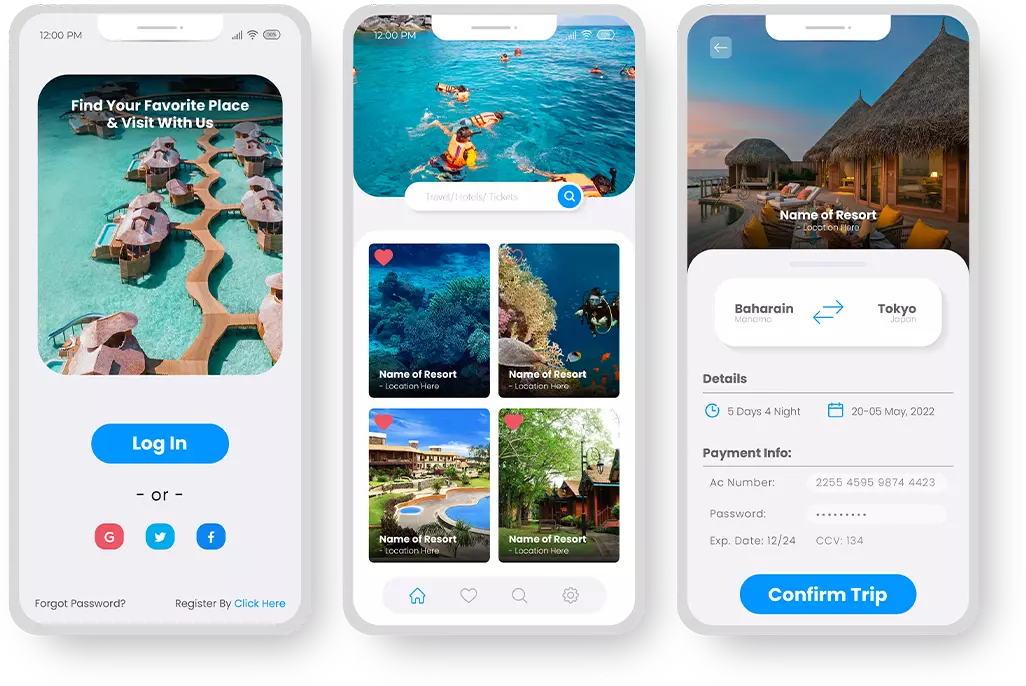Mobile App

Mobile Add Development
Lorem ipsum dolor sit amet, consectetur adipiscing elit. Ut elit tellus, luctus nec ullamcorper mattis, pulvinar dapibus leo.
The Art of Mobile App Development: Crafting User-Centric Experiences
Mobile applications have become an integral part of our daily lives, offering solutions to various needs with just a tap on our smartphones. Crafting a successful mobile app requires a combination of technical expertise and a deep understanding of user behavior. This article delves into the key principles and strategies for developing mobile apps that deliver exceptional user experiences.
1. Define Clear Objectives:
Before embarking on the development journey, clearly define the objectives of your mobile app. What problem does it solve? Who is your target audience? Establishing a clear vision will guide the development process and help create a product that resonates with users.
2. User-Centric Design:
The user interface (UI) and user experience (UX) are critical components of a successful mobile app. Prioritize intuitive design, ensuring that users can navigate the app effortlessly. Conduct user testing to gather feedback and refine the design based on real user interactions.
3. Cross-Platform Compatibility:
In today’s diverse mobile landscape, users access apps on various devices and operating systems. Opt for cross-platform development to reach a broader audience. Utilize frameworks like React Native or Flutter to build apps that work seamlessly on both iOS and Android platforms.
4. Performance Optimization:
User patience is limited when it comes to app performance. Optimize your app for speed and efficiency. Minimize loading times, reduce unnecessary animations, and prioritize a smooth user experience to keep users engaged and satisfied.
5. Security is Paramount:
Security should be a top priority throughout the development process. Implement encryption for sensitive data, secure authentication methods, and regular security audits. Building trust with users is crucial for the success of your mobile app.
6. Embrace Agile Development:
Adopting an agile development methodology allows for iterative and flexible development. Regularly release updates, gather user feedback, and make improvements accordingly. This approach ensures that your app stays relevant and meets evolving user expectations.
7. Integration of Emerging Technologies:
Stay abreast of emerging technologies and consider their integration into your app. Features such as augmented reality, machine learning, or voice recognition can elevate your app’s functionality and provide a cutting-edge user experience.
8. Streamlined Onboarding Process:
First impressions matter. Design an onboarding process that is seamless and user-friendly. Minimize the steps required for users to get started with your app, and provide clear guidance to help them understand its features and benefits.
9. Analytics for Continuous Improvement:
Implement analytics tools to gather data on user behavior within your app. Analyzing this data provides valuable insights into user preferences, feature usage, and areas that may need improvement. Use these analytics to make informed decisions for continuous app enhancement.
10. Regular Updates and Support:
Keep your app relevant and bug-free by providing regular updates. Address user feedback promptly and demonstrate a commitment to continuous improvement. A well-supported app builds trust and loyalty among users.
Conclusion:
Mobile app development is an ever-evolving field that demands a holistic approach. By focusing on user-centric design, performance optimization, and the integration of emerging technologies, you can create mobile apps that not only meet but exceed user expectations, contributing to the success and longevity of your app in the competitive app market.


